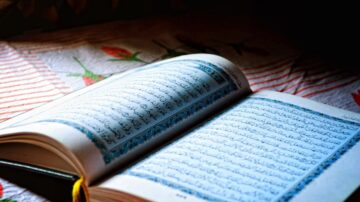One of my professors of Tafseer (Qur’anic Exegesis) gave me an assignment. He told me to read Surat Qaf, the fiftieth chapter of the Holy Qur’an one thousand times during the week and to compose a journal where my thoughts and reflections on those profound words would be kept. At first the task seemed daunting, myself being an American and not prone to the patient acquiescing to the will of a teacher so readily found in the students back home. But, as I studied those verses night after night, I understood with my heart what I had accepted intellectually. The Qur’an, was not a book like others. It dawned upon me that even while I was reciting there was something existential going on. I was changing and not by virtue of my own will. It was the Word that was transforming me.
The Qur’an is not a book like others. It is uncreated and the message that it bears is timeless. No one can exhaust the depth of its meaning. The letters are numbered but the meanings are infinite. There seems to be something that baffles human sensibilities about the Qur’an. Yet, in the same instance, that which baffles human sensibilities is that which most profoundly transforms the human soul-namely, the Qur’an’s austere plenitude.
Ramadan is the month of the Qur’an and it too offers an austere plenitude. If we think deeply about it we become filled with truth and virtue by emptying ourselves. This is ironic, but profound. It is indeed something to ponder.
By Ahmed Hussain

